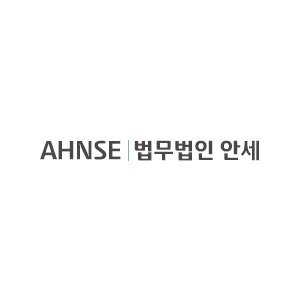Best Tax Increment Financing Lawyers in Seoul
Share your needs with us, get contacted by law firms.
Free. Takes 2 min.
List of the best lawyers in Seoul, South Korea
About Tax Increment Financing Law in Seoul, South Korea
Tax Increment Financing (TIF) is a public financing method used to subsidize infrastructure and community improvement projects. In Seoul, South Korea, TIF is designed to stimulate urban development and revitalization efforts, especially in areas that need improvement. The government uses this financing mechanism to generate economic development by capturing future tax benefits that result from increased property values and leveraging these funds to improve other parts of the area.
Why You May Need a Lawyer
Engaging a lawyer to navigate Tax Increment Financing can be crucial for various reasons. Firstly, the process of setting up TIF arrangements involves complex negotiations and legal documentation, requiring expert legal interpretation. Secondly, if a business or developer requires guidance to ensure compliance with local regulations and laws, a legal expert’s advice is invaluable. Thirdly, in disputes or interpretation issues regarding the application of TIF laws, a lawyer provides critical representation and advocacy. Individuals or businesses planning significant development projects in Seoul would benefit from a lawyer's expertise to maximize TIF advantages and minimize risks.
Local Laws Overview
Seoul’s TIF laws are intricately tied to urban renewal and economic development policies. Key aspects include the identification of specific areas eligible for TIF, criteria for approval of TIF projects by local governmental bodies, and the allocation of incremental tax revenues back into the community. Legal guidelines dictate how funds can be used, the types of improvements eligible for TIF funding, and the mechanisms for public and private partnerships in these projects. It is also critical to comply with transparency and public accountability standards in the use of TIF funds.
Frequently Asked Questions
What is the purpose of Tax Increment Financing?
Tax Increment Financing is used to stimulate economic development and urban renewal by using future tax revenue increases to fund current improvement projects.
Who can initiate a TIF project in Seoul?
Typically, local municipalities or development authorities initiate TIF projects, but private developers can also propose projects subject to city approval.
How are areas selected for TIF in Seoul?
Areas are chosen based on criteria like economic distress, need for urban renewal, and potential for increased tax revenue upon improvement.
What types of projects are eligible for TIF funding?
Eligible projects often include infrastructure development, public amenities, site preparation, and revitalization projects that improve economic and living conditions.
Can TIF be used for residential projects?
Yes, TIF can be applied to residential projects, particularly those that include mixed-use components or affordable housing elements.
Is public consultation required in the TIF process?
Yes, public consultations and hearings are often required to ensure community involvement and transparency in TIF projects.
How long does a TIF designation last?
The duration of a TIF designation varies but generally lasts until the project goals are met or until the maximum period specified by local laws.
What risks should I be aware of with TIF?
Risks include expectations of tax revenue increases not materializing, potential community opposition, and changes in local government policies affecting project continuity.
Are there legal limitations to how TIF revenue can be used?
Yes, there are laws governing the appropriate use of TIF funds, usually restricting their use to specific redevelopment and infrastructure improvements.
How can tax revenue increments be determined through TIF?
Increments are determined by calculating the difference between the current tax revenue and the projected revenue following property value increases after redevelopment.
Additional Resources
For further information, the following resources may be helpful:
- Seoul Metropolitan Government's Urban Planning and Management Department
- The Korean Ministry of Economy and Finance
- Local law firms specializing in property development and finance
- Community development organizations that focus on urban renewal
Next Steps
If you require legal assistance with Tax Increment Financing in Seoul, begin by consulting with a lawyer experienced in property and finance law. Gather all relevant documents about the proposed project or legal queries. Schedule a consultation to discuss your needs and understand the specific legal requirements and opportunities related to your situation. Effective legal guidance will help ensure compliance with local laws and optimize the benefits of TIF for your project.
Lawzana helps you find the best lawyers and law firms in Seoul through a curated and pre-screened list of qualified legal professionals. Our platform offers rankings and detailed profiles of attorneys and law firms, allowing you to compare based on practice areas, including Tax Increment Financing, experience, and client feedback.
Each profile includes a description of the firm's areas of practice, client reviews, team members and partners, year of establishment, spoken languages, office locations, contact information, social media presence, and any published articles or resources. Most firms on our platform speak English and are experienced in both local and international legal matters.
Get a quote from top-rated law firms in Seoul, South Korea — quickly, securely, and without unnecessary hassle.
Disclaimer:
The information provided on this page is for general informational purposes only and does not constitute legal advice. While we strive to ensure the accuracy and relevance of the content, legal information may change over time, and interpretations of the law can vary. You should always consult with a qualified legal professional for advice specific to your situation.
We disclaim all liability for actions taken or not taken based on the content of this page. If you believe any information is incorrect or outdated, please contact us, and we will review and update it where appropriate.















